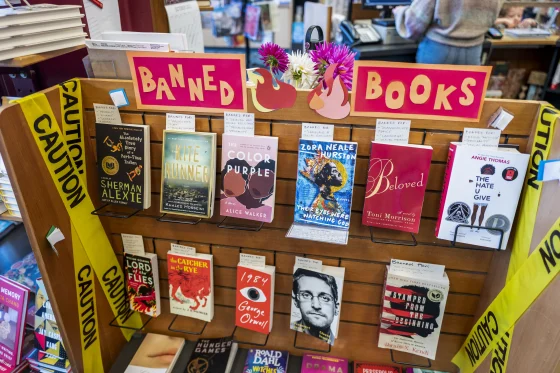
During the 2023-2024 school year, 10,046 instances of book bannings were recorded in the US. Books like The Handmaid’s Tale by Margaret Atwood, Are You There God? It’s me, Margaret. by Judy Blume, and To Kill A Mockingbird by Harper Lee, even kids books like Charlotte’s Web by E. B. White, and the Frog and Toad series by Arnold Lobel have all been banned in schools and libraries in some areas. People complained that these stories portrayed talking animals that could communicate and act just like humans, which were “ungodly” themes. Over the past few years, book bans have become a bigger and bigger issue, with states banning more and more books each year. The majority of students rely on public libraries or their schools to have access to books, so by banning them we are limiting students’ freedom and education.
How Books are Banned
Books are often brought by parents, teachers, or others to libraries, school boards, or the government in an attempt to ban them. This is called “challenging” a book. Typically, it’s very hard to make book bans stick because of our right to free speech and free press in the US, however book bans have now made their way to the supreme court, which means that book bans could become more permanent.
Content of Banned Books
Thirty percent of the books challenged are about race or racism, or feature people of color, while more than one in four include LGBTQIA+ characters or themes. According to PEN America, the majority of books are banned because they feature or address sex or sexual content. Other reasons books have been challenged and banned have been because they address grief and death, substance abuse and use, mental health disorders, or share themes of empowerment or self-esteem.
Where the Book Bans are Taking Place
The majority of book bannings took place in southern states, with Iowa and Florida both banning over 3,000 books in the past year, however the northern states are no exception. In the 2023-2024 year, New York banned 65 books.
Want to learn more?
Book bans have become a more and more important topic in America, and there is so much more information to learn about them. If you’re interested in learning more, the American Library Association, PEN America, and the Digital Public Library of America all have up to date data and information about book bans all across the United states.

